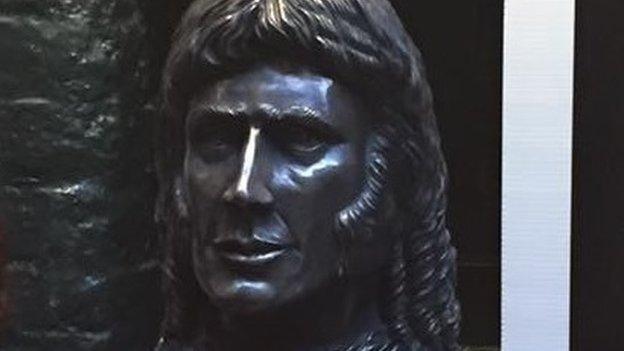Mary Ann McCracken: Belfast woman who fought slavery remembered
- Published
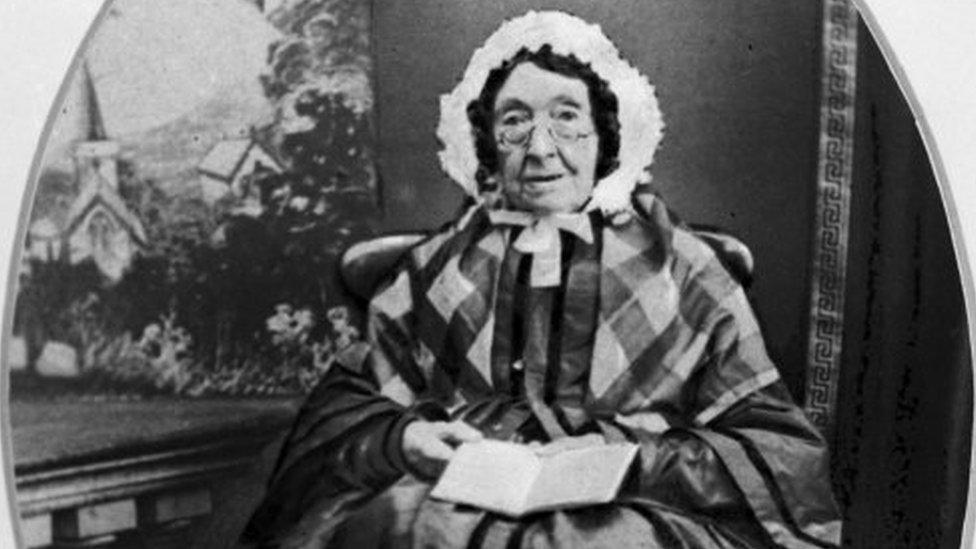
Mary Ann McCracken was a familiar figure at Belfast docks where she warned emigrants about slavery in America
Mary Ann McCracken campaigned against slavery at Belfast docks until she was almost 90 years-old.
The abolitionist, better known as United Irishman Henry Joy's favourite sister, would warn emigrants headed to America about the slave trade there.
A foundation established in her name aims to celebrate her as a campaigner, separate from her brother.
The Mary Ann McCracken Foundation was launched by the Belfast Charitable Society this week.
It will also link her legacy to current issues.
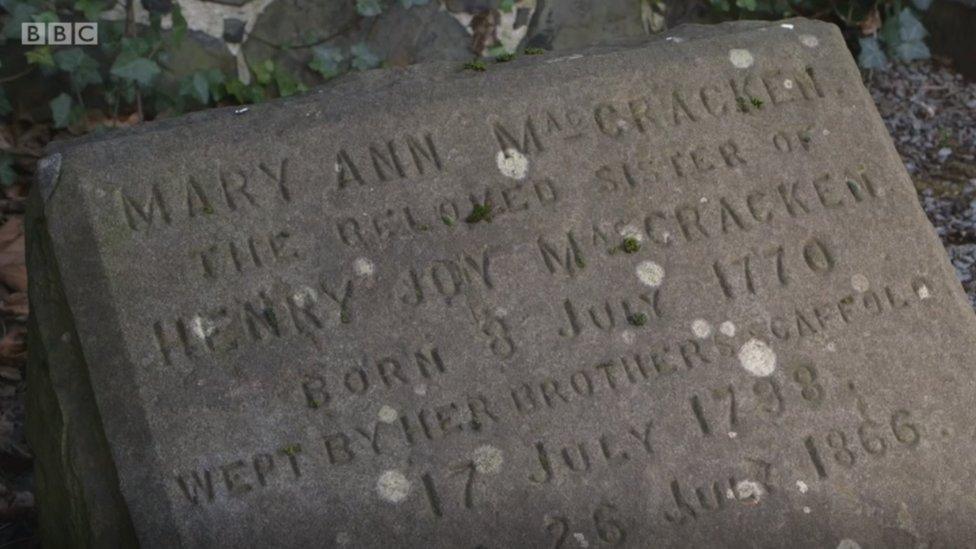
Mary Ann was born into a family of seven children in Belfast in 1770. Her father was a sea captain and her grandfather set up the Newsletter newspaper.
She went to a school with male and female pupils - unusual at the time - which taught "by way of amusement" and reward over punishment.
She was thought to be the favourite sister of Henry Joy McCracken, who was executed in 1798 for his part in the United-Irishmen led Rebellion, and walked with her brother to the gallows.
Mary Ann was an equal rights campaigner, petitioning for education, child welfare and prison reform as well as an end to the slave trade.
The launch of the foundation to mark her life's work comes just months after Belfast City Council passed a proposal to erect a statue dedicated to US abolitionist and activist Frederick Douglass.
Douglass, a former slave, visited Belfast in 1845 as part of his lecturing tour of Ireland.
Causes of today
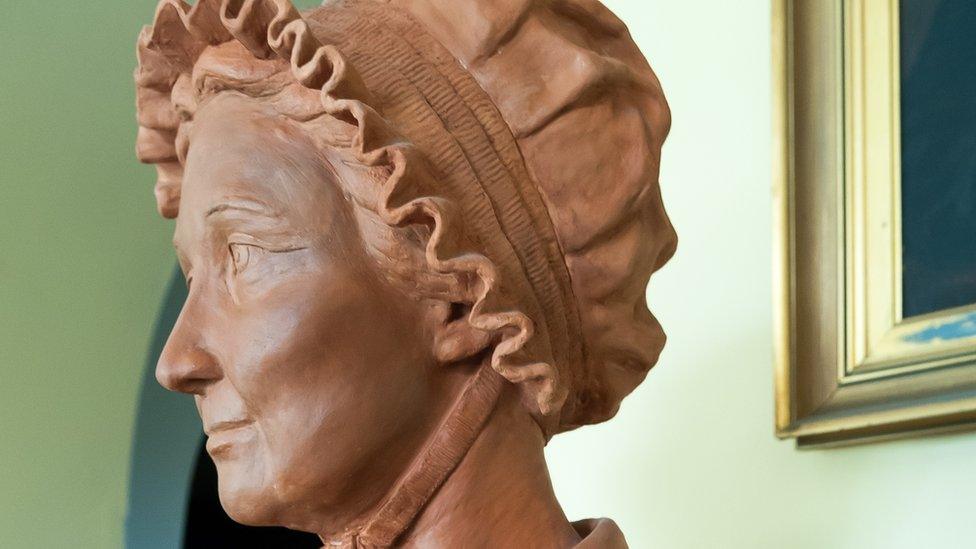
Belfast Charitable Society chief executive Paula Reynolds said The Mary Ann McCracken Foundation would bring Mary Ann out of her brother's shadow - although the lifelong activist had never cared for celebrity.
"It's about using her profile to remind people about the causes that she worked in and then trying to fit that into: 'what can we do now, what are the causes she would be championing today?'," she said.
Speaking at the launch, historian and broadcaster Prof David Olusoga said Mary Ann would be dismayed by our antipathy at some of the human rights violations of today.
"Where are our mass meetings and our monster petitions? Why do our politicians not quake in fear at our moral indignation?" he said.
"Our inaction, our political and moral passivity, our lack of courage I think would surprise and disappoint women like Mary Ann McCracken."
'Undeserved obscurity'

Prof Olusoga said people ask why Mary Ann McCracken is not a household name
Prof Olusoga said Mary Ann's "undeserved obscurity" was partly because of gender but also the "historical disappearance" of abolitionists after emancipation in 1834.
Mary Ann died in 1866, aged 96, and campaigned at the docks into her late eighties, external.
"It's been asked recently: 'Why is she not a household name?' Why a woman so well known in her lifetime, so remarkable, so engaged on so many issues on so many fronts, could be so forgotten?
"For a long time there was conviction in the minds of many that Britain's relationship with enslavement ended in 1834.
"The great anti-slavery campaigners that operated beyond 1834 have been particularly prone to historical disappearance despite the scale of those campaigns, despite how vocal and respected and well-known those leading figures were.
"We do a disservice to the enslaved when we remember abolition, not slavery. We do a disservice to the abolitionist if we fail to understand the complexity of their struggle and the opposition they faced."
- Published3 November 2020
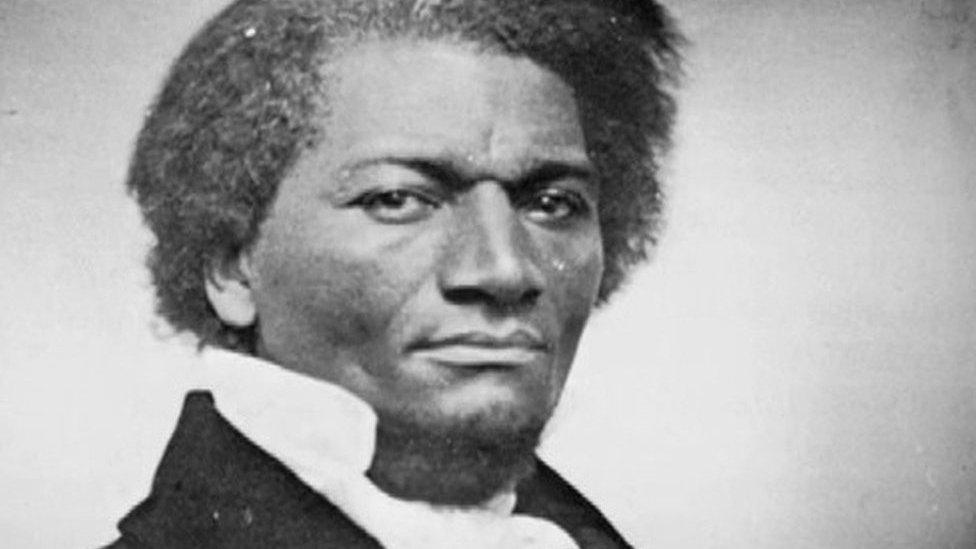
- Published1 September 2017
